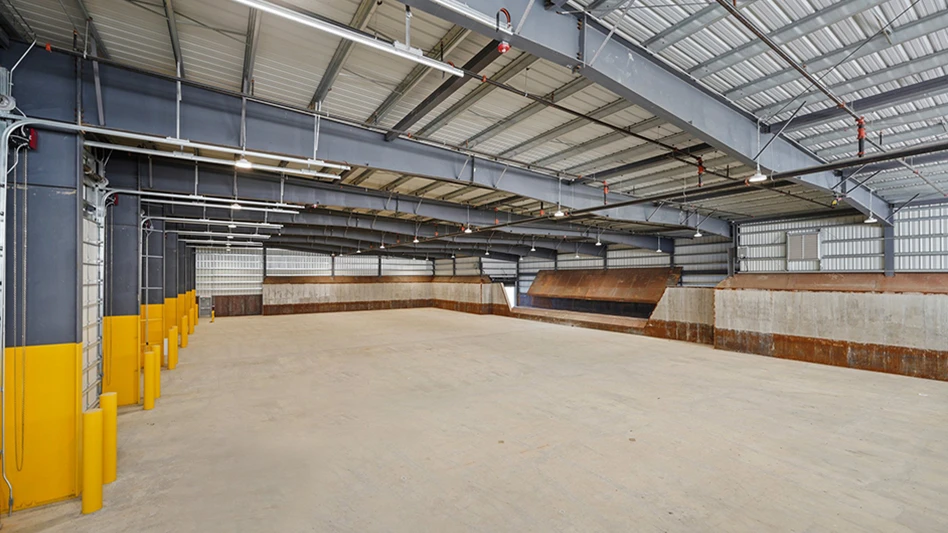One waste management company that has found a niche in the ever-evolving cannabis sector is Del Rey Oaks, California-based Gaiaca Waste Revitalization. Founded in 2016 by CEO and President Jonathan Lee, Gaiaca is a licensed cannabis waste management company registered to handle and transport both hazardous and non-hazardous cannabis byproducts.

Lee talked with Waste Today about how his company got its start, the challenges his customers have managing their waste and the importance of ensuring compliance.
Waste Today (WT): How did Gaiaca get started?
Jonathan Lee (JL): Gaiaca was founded in 2016 with the mission of providing a sustainable solution for cannabis waste destruction within the industry’s strict regulatory framework. In my previous firm [where I worked as] a project manager for a real estate development company, I was assigned a cannabis project to entitle and approve a 200,000-square-foot cultivation facility. The application for the local jurisdiction was an arduous and comprehensive process: requirements included an odor mitigation plan, security plan, inventory plan and, ultimately, a waste management plan. At the time, there was no company willing or able to provide cannabis waste services, let alone any available knowledge on how to properly dispose of cannabis. Gaiaca was created to provide these services for both operators and regulators to assist with this missing piece in the industry’s ecosystem. All operators generate some form of cannabis waste, so we provide services to cultivators, manufacturers, retailers, distributors and testing labs.
WT: What are the biggest problems your customers have in dealing with cannabis waste?
JL: The biggest challenge most of our clients face is having the resources to destroy the cannabis themselves on their licensed premises. They simply do not have the space. Many operators are operating in high-density urban areas where space is limited. Allocating space for cannabis destruction is virtually impossible. Even when operators are able to conduct the cannabis destruction on-site, they then find themselves exposed to the liability of bystanders rummaging through the trash receptacles.
WT: What are some considerations to be mindful of during collection and disposal?
JL: What makes cannabis waste so unique is that there are so many different streams of waste created from all industry operators, and each stream needs to be managed differently. An indoor cultivator generates a different cannabis waste than an extraction facility, which generates a different cannabis waste than an edible manufacturer, which generates a different cannabis waste than a testing lab. While everything needs to be destroyed appropriately, we keep a close watch on where the cannabis waste is coming from to ensure we apply the appropriate destruction method in achieving the best environmentally sustainable solution.
WT: How do you deal with substances for safe disposal, both from a plant and manufactured product standpoint (edibles, etc.)? What about recycling?
JL: We manage all products as if they contain THC. This ensures we handle all products compliantly to the highest degree, confirming accountability of the product until it is destroyed. Our mission is to isolate the cannabis portion of the incoming product, whether flower or edible, and treat it separately from the non-cannabis portions. This allows for non-cannabis (i.e., containers, packaging and labels) to be cleaned and recycled, while the cannabis is destroyed.
WT: How does Gaiaca work with its clients to ensure compliance?
JL: Half of what Gaiaca does is educate and consult to ensure operators are in compliance with their cannabis waste and even consult on how to be compliant with their hazardous waste. We always tell our clients that we are a secondary option for cannabis destruction. If clients do not wish to conduct cannabis destruction themselves, we are their solution.
WT: What would you tell producers about managing their cannabis waste?
JL: Dealing with cannabis waste is not as simple as sprinkling in sawdust and calling it a day. All cannabis waste generators will always be responsible for their waste until it is properly disposed of. This is why it is crucial to use a cannabis destruction company that is licensed, ensuring the cannabis is being properly destroyed. Producers also need to ask where the cannabis waste is going and how it is being properly destroyed. Is the cannabis waste company helping the producer meet [the state’s] waste diversion requirements? It is important for producers to start asking these questions and understand where the waste is going so they can choose the best sustainable solution for cannabis waste destruction while remaining compliant within the strict regulatory framework.
Get curated news on YOUR industry.
Enter your email to receive our newsletters.
Explore the May June 2019 Issue
Check out more from this issue and find your next story to read.
Latest from Waste Today
- ReMA board to consider changes to residential dual-, single-stream MRF specifications
- Miller Environmental Group Inc. appoints CEO
- DPI acquires Concept Plastics Co.
- Laurel Mountain Capital announces investment in 5280 Waste Solutions
- Cielo investor requests annual meeting
- WIH Resource Group celebrates 20th anniversary
- NWRA: NIOSH cuts a step in the wrong direction
- Valicor Environmental services acquires Affordable Waste Management





